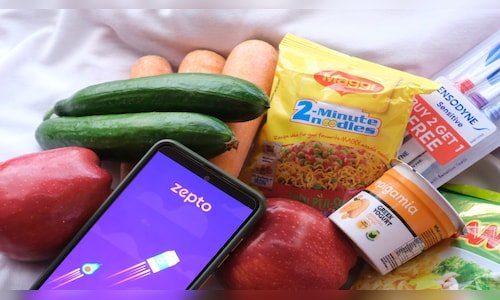IPO-bound Zepto raises $350 million in mega domestic funding round

Zepto’s valuation remains steady at $5 billion. The funding adds to Zepto’s impressive 2024 trajectory, which has seen the company raise over $1 billion.
Acknowledging the milestone, Aadit Palicha, CEO and Co-founder of Zepto, noted, “We are humbled to have reached a place in India’s economic growth where we’ve not only fostered that trust but also spearheaded a fundraise of this magnitude, which will hopefully set a precedent for the startups that follow.”
In late August, Zepto raised $340 million in a funding round led by General Catalyst and Dragon Fund, with Epiq Capital joining as a new investor. Existing investors such as StepStone, Lightspeed, DST Global, and Contrary also increased their stakes.
Founded in 2021 by Aadit Palicha and Kaivalya Vohra, IPO-bound Zepto sells over 25,000 products ranging from groceries to electronics, with a promise of delivery in just 10 minutes. The company operates through a network of dark stores and delivery hubs across the country. Currently active in more than 17 cities, Zepto has over 550 dark stores and processes more than 700,000 daily orders. The platform supports 56,000 delivery partners and 30,000 staff in its delivery network and has empowered 20,000 farmers, with over 5,000 employees driving its rapid expansion.
Speaking to CNBC-TV18 in August, CEO and Co-founder Aadit Palicha shared that the company is preparing for a potential IPO within the next 18–24 months.
“I think 2026—potentially even late 2025—is a realistic timeline,” Palicha said, emphasising that the IPO “sweet spot” would be when Zepto starts generating “significant amounts of free cash flow.” He added, “It’s not about profitability today. Investors are betting on our ability to generate $300–500 million in free cash flow in a reasonable timeframe.”
Financially, Zepto is scaling rapidly, with FY24 sales projected to surpass ₹5,000 crore—double the ₹2,500 crore reported in FY23.
This significant fundraise comes amid fierce competition from rivals like Blinkit (owned by Zomato), Swiggy Instamart, and BigBasket, all ramping up their quick commerce operations. Competition from e-commerce majors Amazon and Flipkart is also adding to the frenzy. Swiggy Instamart, in particular, has accelerated growth following Swiggy’s stellar stock market debut.
A Motilal Oswal report highlights the intense battle within the quick commerce space.
Despite Swiggy Instamart pioneering the segment, Blinkit holds a 46% market share in Q1FY25. Zepto follows with a 29% share, and Swiggy Instamart is third at 25%.
According to a Datum Intelligence report, the quick commerce market is projected to grow from $6.1 billion in 2024 to $40 billion by 2030, driven by the promise of 10–30-minute deliveries. The report notes that over 82% of consumers have shifted at least a quarter of their kirana purchases to quick commerce platforms, with 5% abandoning kirana stores entirely—a trend that threatens to reshape the retail landscape.
This rapid expansion has drawn scrutiny. The Consumer Affairs Ministry has expressed concerns over the impact on small businesses and kirana stores, which remain critical to local economies.
Kotak Mahindra Bank founder Uday Kotak echoed these sentiments at CNBC-TV18’s Global Leadership Summit, describing quick commerce as a growing challenge for traditional retail. “This challenge could eventually become a political problem,” he warned.
On 13 November, the Confederation of All India Traders (CAIT) released a white paper accusing quick commerce platforms of misusing Foreign Direct Investment (FDI) to control supply chains, inventory, and pricing, thereby disadvantaging small retailers and threatening the survival of 30 million kirana stores.
“These platforms are aggressively driving small retailers out of business,” said CAIT Secretary General and Chandni Chowk MP Praveen Khandelwal, calling out their reliance on FDI to subsidise losses and engage in predatory practices.








